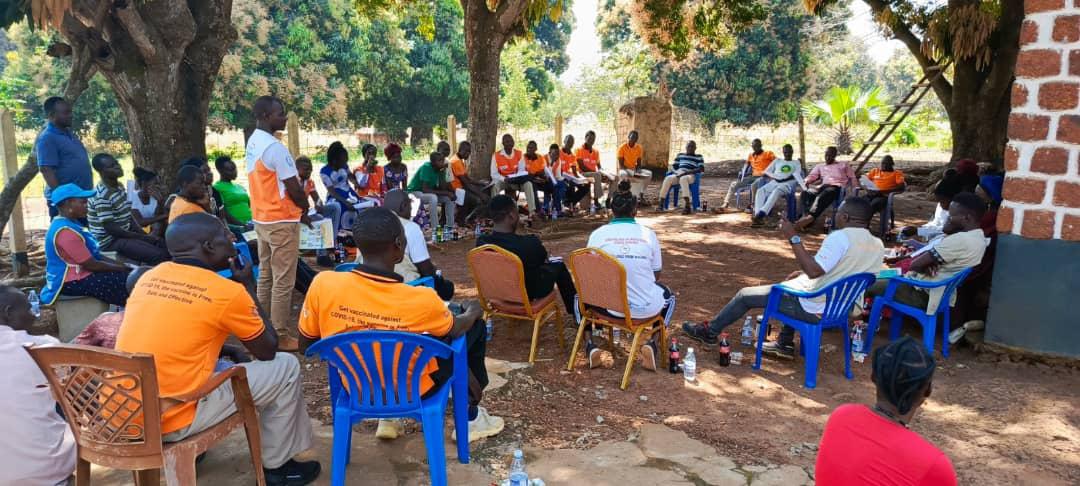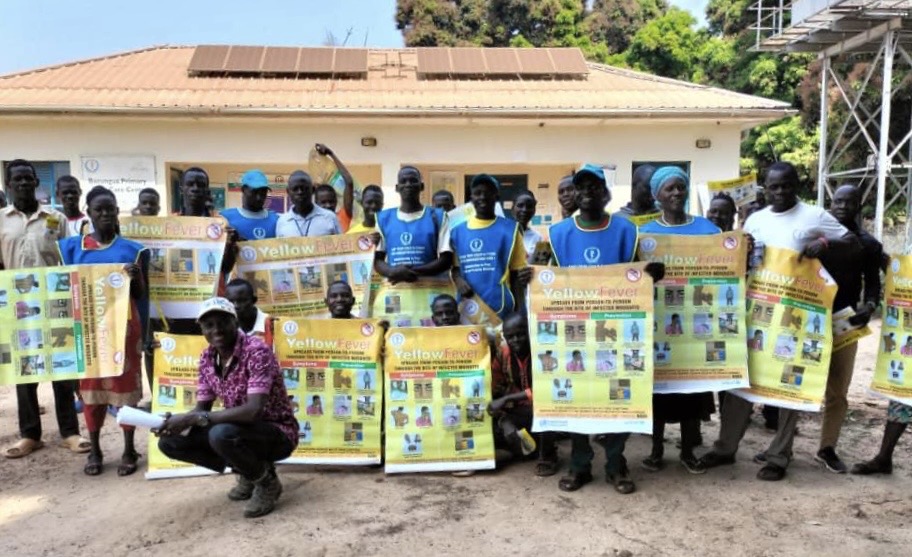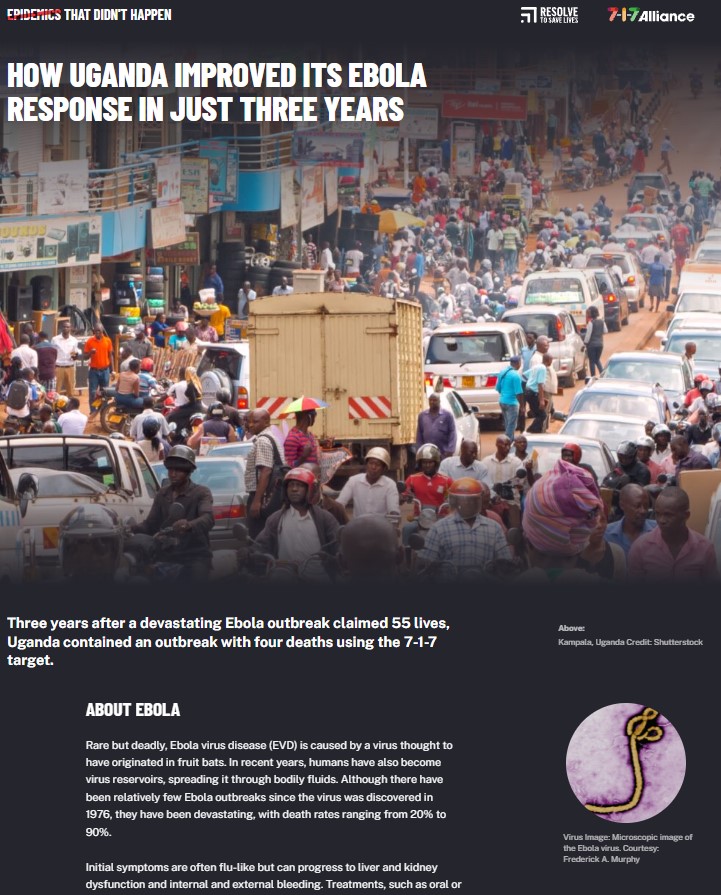The 7-1-7 target has proven to be a critically important tool for countries to assess the performance of their health systems, quickly identify bottlenecks to effective action, and move from capacity measurement to system improvement. In South Sudan, which started using 7-1-7 in 2023, 78 suspected and 3 confirmed cases of Yellow Fever, concentrated in a single state, had been identified as of late March, with just 6 fatalities. By comparison, during the country’s last large yellow fever outbreak in 2003, there were a total 178 cases with 27 deaths in the same time period. Although the outbreak is still ongoing, South Sudan mitigated its impacts and saved lives with 7-1-7.
Under the 7-1-7 organizing principle, every suspected outbreak is identified within 7 days of emergence, reported to public health authorities with initiation of investigation and response efforts within 1 day, and effectively responded to – as defined by objective benchmarks in defined categories – within 7 days. This 7-1-7 target provides a global basis for accountability and has already been successfully applied by several countries to assess and improve their performance.
Because South Sudan is hit by frequent health emergencies, country leaders recognized the need to accelerate the time taken to detect, notify, and respond to emerging outbreaks to better contain disease spread and save lives. Encouraged by the early successes of Uganda and other African countries that have adopted the 7-1-7 target, South Sudan joined the 7-1-7 Alliance shortly after its formation in May 2023.
The 7-1-7 Alliance is a country-led initiative hosted by Resolve to Save Lives that provides technical assistance and financial support – as well as a growing global community of practice – to help all countries achieve the 7-1-7 target. In one of its first actions as an Alliance partner, South Sudan sent a delegation led by the country’s Director of Health Security and 7-1-7 technical lead Dr. Angelo Goup Thon Kouch to neighboring Uganda, marking the first peer-to-peer visit within the Alliance. Because the two countries had built strong relationships through the years, it was natural that they would collaborate on health security issues.
Providentially, the 7-1-7 team at South Sudan’s Ministry of Health had just finished training relevant country stakeholders in December just as the current yellow fever outbreak emerged. “The 7-1-7 Alliance is among the best modern global initiatives,” said Dr. Angelo. “Applying the 7-1-7 target and tools can quickly improve countries’ preparedness and response by helping identify bottlenecks and enablers, as well as facilitate root cause analysis for better decision making.”

Dr. Angelo and his team applied their new understanding of the 7-1-7 target to assess the yellow fever outbreak in real time using the World Health Organization’s Early Action Review protocol, which leverages the 7-1-7 target by incorporating it into official WHO guidance.
Overall, South Sudan’s outbreak detection and response systems performed well, and the 7-1-7 target was achieved. “When you apply this approach correctly,” Dr. Angelo observed, “you can see positive progress in your response within very short time.” Several bottlenecks were identified, many of them organizational and structural issues. They were easily addressed once 7-1-7 findings were shared with a wide group of stakeholders including WHO and UNICEF.

The Republic of South Sudan will continue applying 7-1-7 tools to new and previous outbreaks, cascade 7-1-7 training to subnational and community levels, and expand peer-to-peer learning opportunities among countries. Through this ongoing learning process from training and country experiences, South Sudan has benefited from collaboration with our neighbor Uganda and technical and financial support from the 7-1-7Alliance.



